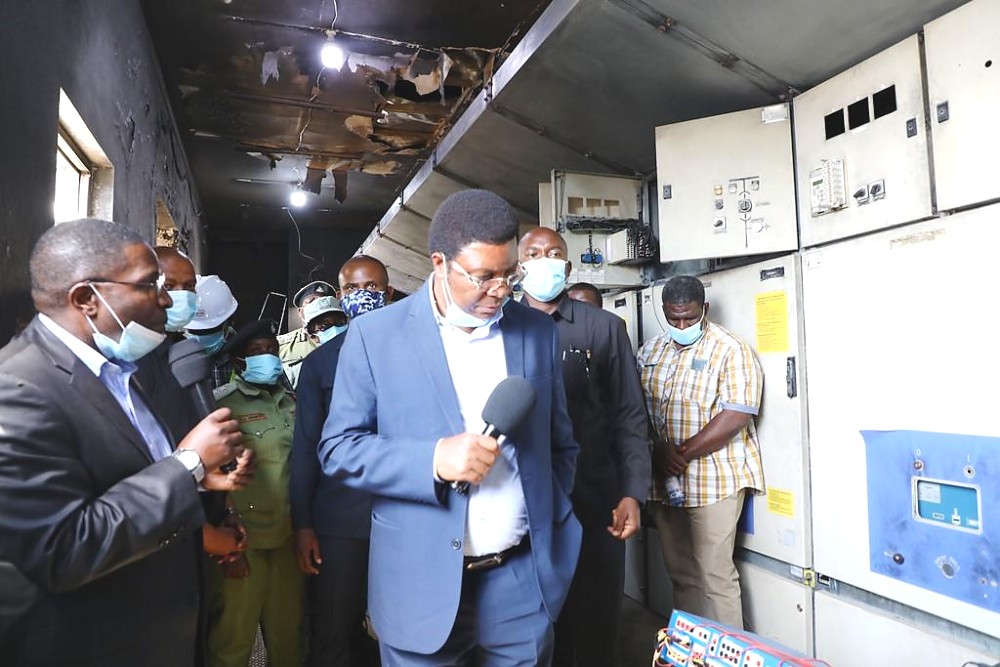The Government has continued to improve and establish new major infrastructures, to further attract investments and steer economic growth. Prime Minister Kassim Majaliwa disclosed this after visiting Nguru Hills Ranch Ltd to check on the development of a state-of-the-art abattoir project in Mvomero District, Morogoro Region.
The abattoir is jointly owned by three shareholders including the government through the Public Service Social Security Fund (PSSSF), Eclipse Investment (LLC) and Busara Investment Company (LLP). "The Government has placed more emphasis on improvement of infrastructure which is a key factor in the facilitation of investment. The Government has so far constructed roads, bought planes and built several structures with a goal of strengthening investment," said Mr. Majaliwa.
The Premier also revealed that industrial investment has helped to secure markets for the raw materials in areas including Agriculture, Minerals and Fisheries. Besides, a big number of Tanzanians have secured jobs taking into account that the kind of investment has accumulated a large chunk of employment opportunities. The Premier noted that a favorable investment environment will enable the government to collect more revenues.
The PM also observed that a large section of Tanzanians are hardworking, patriotic and trustworthy, something which has earned the country a lot of accolades and encourage investment from various sectors within and outside the country. "I have been getting a lot of compliments from various people during my visits in foreign countries... This is very encouraging and has brought hope to the country's investment sector," revealed Mr. Majaliwa.
Commenting on the modern abattoir project, the Prime Minister said it will help to strengthen the livestock market and produce meat that will be sold in large quantities abroad and locally, giving room for pastoralists to sell their livestock among other produce. Mr. Majaliwa also called upon the company's shareholders to expand their scope by adding more machinery in processing of other raw material generated from livestock such as hooves, hides and horns to increase the value chain.
He, however, directed the Ministry of Livestock and Fisheries to increase momentum in encouraging livestock keepers to use ring marking, instead of iron branding to maintain the quality of their skin and meat. The Deputy-Minister for Livestock and Fisheries, Mr. Abdallah Ulega, observed through the Meat Board, they are prepared to roll out the exercise of identifying the livestock keepers for a special programme of fattening the animals in securing a reliable market.
Mr. Ulega pointed out that the Ministry has also started providing education on how to properly skin the animals in accordance with the requirements of factories within and outside the country. PSSSF Director General (DG), Mr. Hosea Kashimba said upon the project's completion, it will have the ability to slaughter 1,000 cows and 2,000 sheep daily. Equally, the abattoir will generate over 350 direct jobs and 2,000 indirect jobs which in turn increase the incomes of the livestock keepers by procuring livestock within the country.
Mr. Kashimba went on to reveal that the project will among other things, increase the financial abilities of the farmers who will sell crops used as food to fatten the livestock before they are slaughtered. "The establishment will generate more revenues, through various taxes and hence the Government will accumulate foreign currency through the export of livestock," said Mr. Kashimba.
On the other hand, the establishment will ease access to animal skin used as raw materials at the International Leather Factory in Kilimanjaro and the Prison Service Department. "By largely, 80 percent of the meat that will be produced will be sold outside the country particularly in the Middle East and 20 percent for the local market," noted the DG.
The Government is currently reviewing various laws and policies regulating investments with the aim to create a conducive climate for investors and check barriers hindering investments in the country.
